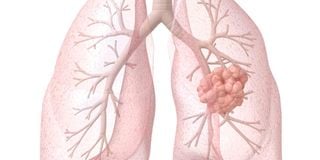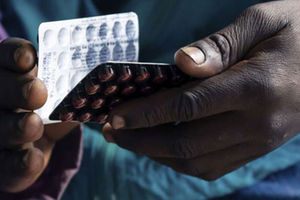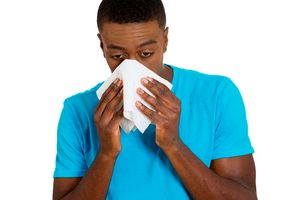Covid-19: What to consider for lung cancer patients

What you need to know:
- Lung cancer patients seem to rank among the tumour type with highest risk of adverse effects of Covid-19.
- Patients with lung cancer were diagnosed with acute respiratory distress syndrome (ARDS), after contracting Covid-19.
- At the time of hospital admission, many lung cancer patients were constantly in need of oxygen supplies.
- Doctors strongly recommend that lung cancer patients be prioritised for Covid-19 vaccination.
The Covid-19 virus is a flu-like illness that spreads through droplets of fluids from the mouth and nose.
Older people, and those with underlying medical problems like cardiovascular disease, diabetes, chronic respiratory disease, and cancer are more susceptible to adverse symptoms. Cancer patients with immunosuppression are at a higher risk.
Even though there is currently not enough data on the prevalence of Covid-19 in cancer patients, studies seem to show that infection rates could be higher among this population.
How Covid-19 affected cancer treatment
Covid-19 poses a high risk of lung cancer. Conversely, research also shows an increase in Covid-19 infection rates among lung cancer patients.
Coronavirus has been associated with infrequent hospital visits.
The consensus has been that during the Covid-19 pandemic, patients have deferred enrolment in lung cancer screening because of fear of risk of exposure.
This has affected routine treatment for patients with cancer and led to poor prognosis.
Covid-19 symptoms in lung cancer patients
Anyone can contract Covid-19, but patients with lung cancer are at risk of death: it is imperative that they are protected against exposure to the virus.
Typical symptoms that present themselves after two to 14 days of exposure to Covid-19 include high fever, severe coughs, and inflammation of the lungs.
Effects of Covid-19 on lung cancer patients
Lung cancer patients seem to rank among the tumour type with highest risk of COVID-19 adverse effects.
Patients with lung cancer were diagnosed with acute respiratory distress syndrome (ARDS), after contracting Covid-19.
At the time of hospital admission, many lung cancer patients were constantly in need of oxygen supplies. This was an indication that Covid-19 affected oxygen levels of patients.
There has been an increased rate of fatality among lung cancer patients compared to people without the illness.
According to medical research, the reason for this is not entirely clear, but in some cases, it could be because these patients tend to already have a weakened immune system as they are fighting cancer.
Covid-19 vaccine for lung cancer patients
Experts typically recommend the Covid-19 vaccine for all lung cancer patients; but those with a known severe reaction to polyethylene glycol should refrain.
Consider factors like the patient’s health status as well as type and timing of their cancer treatment in deciding whether to get vaccinated.
Doctors strongly recommend that lung cancer patients be prioritised for Covid-19 vaccination.
Does the vaccine interfere with lung cancer treatment?
As of now, vaccines may not interfere with treatment; but it is best to consult your doctor if you are undergoing chemotherapy or radiation therapy and still want to get vaccinated.
This is because the vaccine needs a good immune system for it to work properly, so these treatments can diminish that.
Let the doctor know if you are currently using any medication at the time of vaccination.
Home remedies and Covid-19
People are using various remedies for Covid-19 but it is advisable to avoid these treatments.
For a person with underlying medical condition, it could worsen the illness.
Consult your doctor first. Inform your doctor about over the counter medicine for prescription.
How to reduce exposure of lung cancer to Covid-19
For people living with lung cancer, being aware of their risk of contracting Covid-19 and making smart choices is ideal.
Consider the CDC safety guidelines which include the following:
- Wash or sanitise hands and surfaces frequently.
- Avoid public places or practise social distancing if you really must be in a public place.
- Use supplements to boost immunity, for example Vitamin C and zinc supplements.
- Use masks or face shields.
- Avoid contact with people who have been diagnosed with the virus.
Covid-19 research is still ongoing. There are so many experiments that are yet to be concluded.
Luckily, rollout of vaccines is a significant milestone especially for people with underlying health conditions.
Practicing safety precautions also play a major role in combating the spread of the virus.




